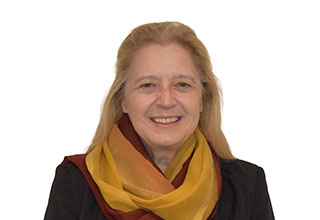
Dr. Seraphia Hietmann
Associate Professor
School of Languages and Literature/ Humanities.
School of Buddhist Studies, Philosophy and Comparative religion
The area of expertise lies with early Indian Buddhism and philosophy, i.e. the AbhisamayalafT)kara and related texts. in Madhyamaka Studies, with a focus on Nagarjuna, Bhaviveka etc. and South-. Southeast Asian ( 1st to 16th cen.) art & archaeology. It is sustained by qualified M.A. studies (1980- 1986) in Tibetan Studies (focus: Indian Buddhist Sanskrit texts in translation, Tibetan art and archaeology. Tibetan culture), Indian Studies (focus: Buddhist Studies in Sanskrit texts. Indian philosophy. Sanskrit philology, Buddhist Chinese, Pali, Asian art and archaeology), and The Study of Religions (focus: philosophy of religion) at Hamburg University, two years of postgraduate studies in Madhyamaka at CUTS University, Sarnath, India (1987-1989), and Ph.D. studies in Madhyamaka at Vienna University and the Academy of Science, (1999-2002). Further expertise embraces the History of Art and History of Oriental Art (up to 16th cen.) with a focus on Indian, Tibetan, South-and Southeast Asian, early Silk Road art, Cambodian architecture, and on Chinese and Japanese architecture etc. It is supported by M.A. studies in History of Art and History of Oriental Art at Bonn·niversity (2003-2009). Third focus of research is the history of medicine and the history and practice of naturopathy, especially Ayurveda, in Asia and Europe (studied with native capacities in the field Dr. med. Losang Bhuti, expert on Tibetan, Indian, and Chinese herbal medicine, and acupuncture, Prof. Rahnade, Pune, Dr. med. Kalyani Chopra, Habichtswald Klinik, Kassel Bad Wilhelmshohe, and Dr. phiI. J. Meyer, University Wilrzburg, historian of medicine). My present research focus lies in the interdisciplinary research field of knowledge transfer (dtsch. Episteme im Transfer). treating the heritage and function of multicultural traditions, religious and other, in western and Asian. esp. Indian. pluralistic societies as well as World Cultural Heritage. The scientific research envisions to entangle the cultural routes of knowledge transfer, embraces the history of ideas of multiple cultures. their interactions and fusions on various levels, art historic, philosophic, and religious. and envisions to develop a differentiated understand of the impact this has had on the formation of society. its culture. the cultural self-understanding and identity developed thereof relevant for modern society building. Apart from university employments (teaching and research duties) 1 have held many lectures among others the commemoration lecture (with a focus on Indian-German ties), the Annual Wilhelm von Pochhammer Memorial Lecture al the Indian International Centre, Delhi, India, (2012) upon the invitation of FJGS’s President, Ambassador Satinder K. Lamhnh, as well as interviews with academic and public bodies, radio, newspaper etc.